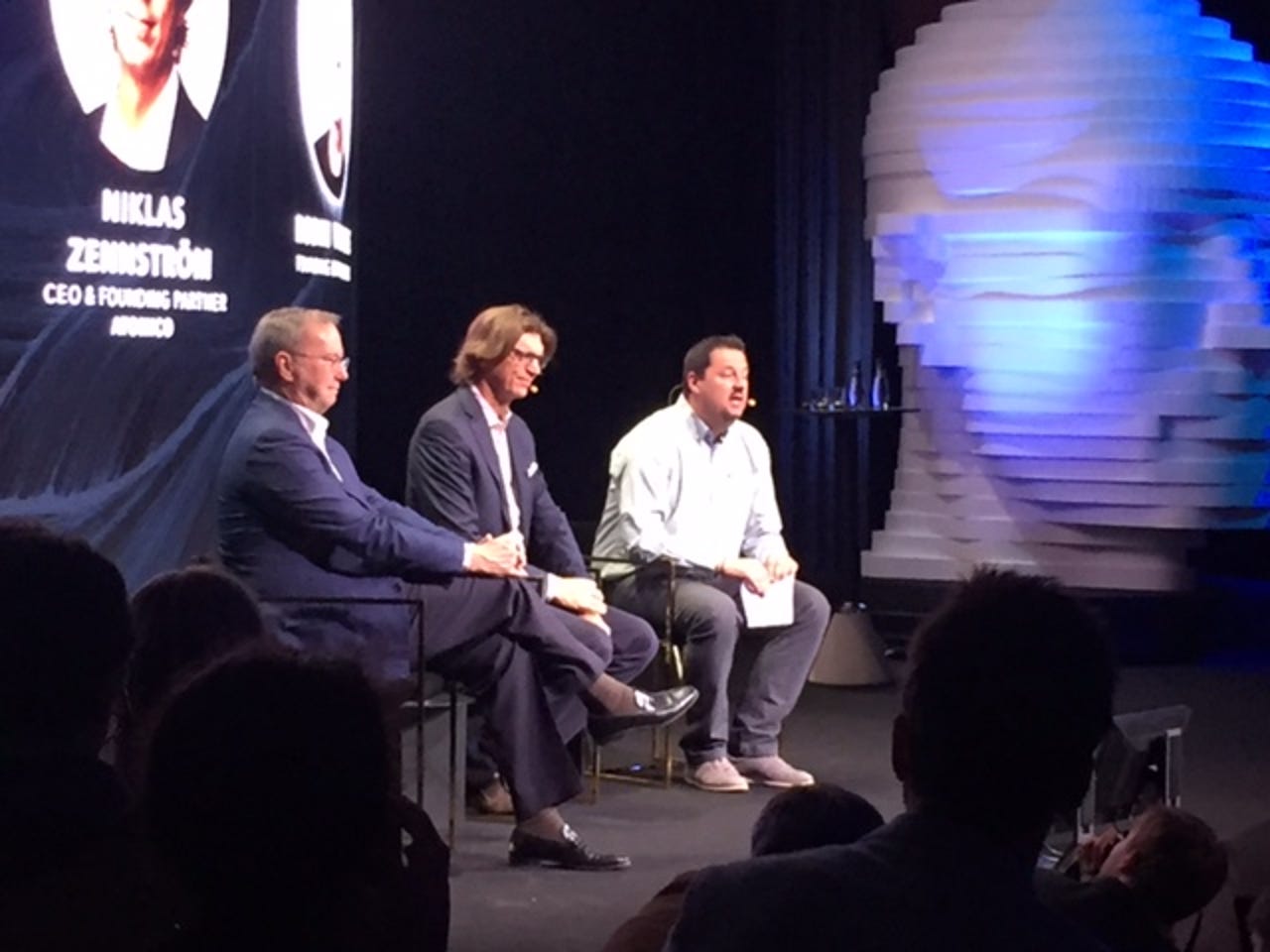Google Alphabet's Schmidt: Ignore Elon Musk's AI fears - he's no computer scientist


Alphabet chairman Eric Schmidt, left, talks AI alongside Skype co-founder Niklas Zennström, center.
Alphabet chairman Eric Schmidt has hit back at suggestions by Tesla boss Elon Musk that Google's artificial intelligence initiatives should be feared.
If you're terrified by artificial intelligence outsmarting and then wiping out humanity, you've watched too many movies, Schmidt told a panel at Symposium Stockholm on Thursday.
Asked about how such a scenario could be stopped if it occurred, Schmidt replied: "Don't you think humans would notice this happening? And don't you think humans would then go about turning these computers off? But then a virus starts relocating itself to other computers and then it's a mad race for the last computer, and you can't turn it off and then it destroys humanity. That's a movie.
"The state of the art doesn't support any of these scenarios. It's just speculation," Schmidt said.
He also took a swing at prominent scientists who have raised alarm bells over the potential dangers of AI, such as British scientist Stephen Hawking and Tesla and SpaceX founder Elon Musk.
Schmidt said while both Hawking and Musk are brilliant minds, neither is a computer scientist. Hawking is a physicist and Musk is an engineer, he noted.
Schmidt added that the $1bn Musk earmarked for the OpenAI initiative, which aims to steer AI towards benefiting humanity without a profit motivation, was entirely misdirected.
"Elon felt so strongly about this that he invested $1bn to precisely build the AI we've been talking about. So he's put his money not where his mouth is," Schmidt said.
Musk earlier this week suggested in an interview with Recode that of all the companies investing in AI capabilities, the only efforts that worry him are Google's.
Musk also explained OpenAI aimed to "increase the probability that the future will be good" and ensuring that AI power is distributed broadly enough for the collective to overcome a bad actor.
According to Schmidt, Google's efforts are tame and focused on creating personal assistants for everyone, such as its recently launched Allo app, which learns from users how to respond to messages automatically.
"Our goal is to get to the point where everyone has an assistant," Schmidt said.
He also suggested Google has not developed AI to a level that is anywhere close to surpassing human intelligence.
"We're still trying to learn how to deal with games," Schmidt said, referring to Google's AlphaGo victory over Go grandmaster Lee Se-dol.
"It's a big leap from that to the scenarios you see in movies," he said.
Read more on Google Alphabet
- Eric Schmidt: Alphabet is "very confident" in biotech division Verily
- Toyota close to deal for Alphabet's Boston Dynamics: Report
- Tony Fadell, founder of Nest, steps down as CEO
- Google Alphabet boss Schmidt: Yeah, I have an iPhone 6S - but Galaxy S7 is better
- Oracle claims Android has generated $42 billion in revenues for Google